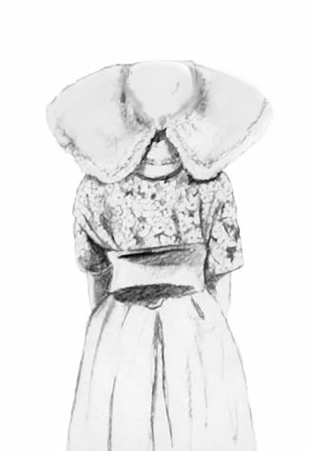International
Radio plays
In the radio plays the main characters are for women and girls that normally would not stand out in everyday life. Nevertheless, hidden behind a façade of nondescript life, a livelihood of often violence and injustice is present. The stories are set in a western society (Holland) on the cutting edge of different cultures.
The style is a monologue. The plays vary in length from 45 minutes to well over an hour.
I Zeeland Girl
‘I Zeeland girl’ is based on the author’s love hate relationship with her own roots, the Zeeland bible belt. The main character is a Zeeland girl, Dutch pride that stands for ‘the land were life is good’, but not in this case as she rigorously deals with her past in which men knew how to find her. She leaves for the city and takes revenge in her own way. She however also contains her way of living and manages to remain true to herself. The jury report for the Prix d’Europe 2002: This Dutch monologue creates an immensely rich image of a woman’s life (…) The writing has high poetic values and the production lifted up this woman’s story to a beautiful epic.
‘I Zeeland Girl’ has been translated and broadcasted in Dutch, English, German, Swedish and Icelandic.
I Zeeland Girl, Dutch
I Zeeland Girl, German
I Zeeland Girl, Icelandic
I Zeeland Girl, Swedish
Motel Texel
‘Motel Texel’ tells the story of an Iranian asylum seeker who had to leave Iran during the reign of Khomeini with husband and children and finds herself back in Holland. They are being located on the isle of Texel in the north of Holland. Her husband takes the children without saying and decides to go back to Iran leaving his wife behind. Alone she is left behind on this strange empty island that mainly consist of sea, sand, wind and birds.
‘Motel Texel’ has been translated into English and German and was broadcasted on BBC radio 4 and German broadcast stations in Germany and Switzerland.
Motel Texel, Dutch
Motel Texel, German
Motel Texel, BBC, Engels
Loubna!Loubna!
Loubna!Loubna!, Dutch ‘Loubna! Loubna!’ is about the unconventional Moroccan girl Loubna who’s elderly home is to small for her and where her mother and sisters are constantly about, eating big quantities of comfort food. She therefore hangs around the main railway station of the city of Utrecht. Here she meets the Berber boy Tarek who sleeps everywhere and nowhere and concerns himself with obscure small businesses. Loubna elopes with him and experiences the nomad way of life. As it becomes clear that Tarek is not an alternative, she can only relate to her own hopes and her believes for a better future.
Loubna! Loubna! has been translated into English and German and was broadcasted in Holland and Germany.
‘Loubna! Loubna!’ can be listened to in Dutch at http://www.hollanddoc.nl/programmas/39337374/afleveringen/39338566/
Loubna!Loubna!, German
Motherland /Mama Patria
Motherland, Dutch‘Motherland/ Mama Patria’ is the story of Consilde a young Antillean teenage mother who lives with her son in the south east of Amsterdam (The Bijlmer). Raised in poverty in Buena Vista Curacao (Dutch Antilles), she leaves for Amsterdam with her mother, pregnant of white gold. This trip that should have been a trip of happiness towards a better future ends dramatic. She remains in Amsterdam South East waiting for the young black illegal father of her child that will never show up.
‘Motherland/ Mama Patria’ has been translated in Papiamento and was broadcasted in Holland and the Dutch Antilles.
Motherland/Mama Patria, Papiamento
‘Little story about my brother and me and our sister in the woods’
Because her mother, at one time traumatized by the civil war, is often going back to Africa, young Amarante is left alone to live with her brother Kwadzo in a small upstairs apartment in Rotterdam that always smells of other people because the apartment is packed with used clothes that have been collected for the church. Her heart breaks when her brother does not come home any longer, starts to live like a white boy and seeks his happiness in the suburbs. When Kwadzo, not completely voluntarily, returns with a sentence doing community service checked every hour by electronic surveillance, Amarante does her utmost to re-establish her ties with Kwadzo and to strengthen family relationships. Little story has been translated into English and German and was broadcasted in Holland and Germany.

